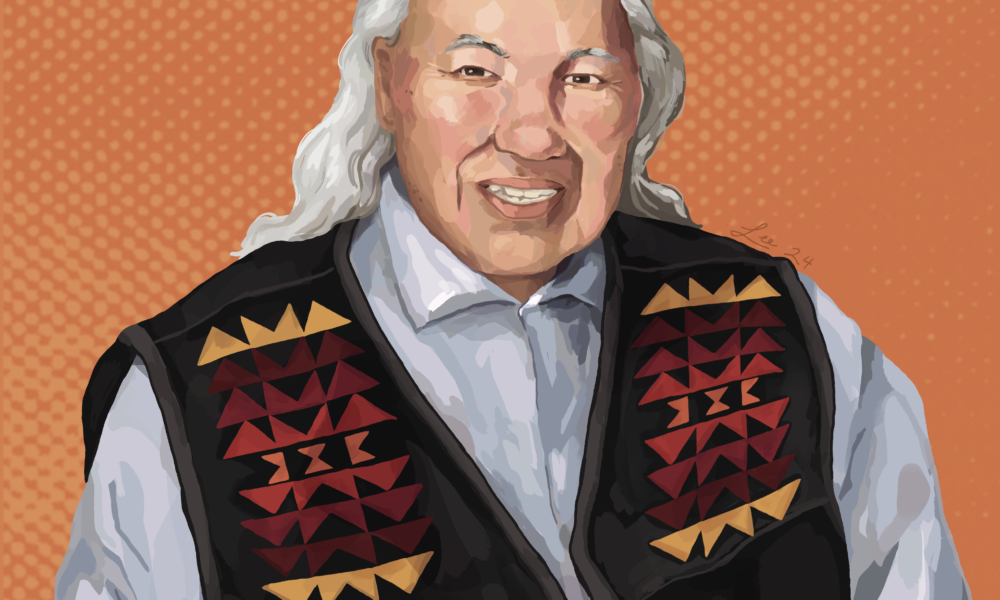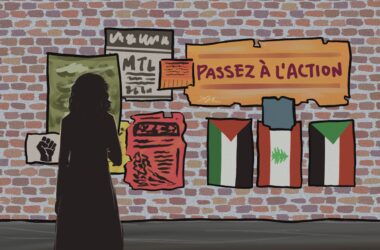Murray Sinclair (Mazina Giizhik-iban) was born in 1951 on the former St. Peter’s Reserve. He grew up in the Selkirk area north of Winnipeg, Manitoba and later attended the University of Manitoba’s Faculty of Law, graduating in 1979. In the years to follow, Sinclair dedicated his work to defending the rights of Indigenous persons and exposing the systemic oppression the Canadian justice system imposed on Indigenous peoples. Sinclair passed away on Nov. 4 at age 73.
Sinclair became the Associate Chief Judge of the Provincial Court of Manitoba in 1988, making him the first Indigenous judge in Manitoba and the second in Canada. Sinclair’s recommendations included an emphasis on Indigenous offenders’ backgrounds and circumstances when applying sentencing, which allowed the court to consider historical inequalities and the legacies of colonialism when sentencing. This was later enshrined in the 1996 Gladue Principles. In 2001, Sinclair became the first Indigenous judge appointed to the Court of King’s Bench, the highest trial court in Manitoba.
In 2009, Sinclair was appointed Chief Commissioner of the Truth and Reconciliation Commission of Canada (TRC)—which provided those affected by the legacy of the Indian Residential Schools system an opportunity to share their stories and experiences. The establishment of the TRC was mandated as a result of the 2007 Indian Residential Schools Settlement Agreement, the largest class-action settlement in Canadian history. For six years, the TRC facilitated reconciliation among residential school survivors, their families, their communities, and Canadians. It heard over 6,500 witness accounts across Canada, hosted seven national events, and created a historical record of the residential school system which is housed by the National Centre for Truth and Reconciliation at the University of Manitoba.
The TRC delivered their six-volume final report to Prime Minister Justin Trudeau in December 2015. It outlined recommendations to the Canadian government for carrying out reconciliation with Indigenous communities. This included 94 specific calls to action relating to legacy and reconciliation. While the TRC failed to recognize the oppression rooted in land dispossession for Indigenous persons, Sinclair’s work to platform Indigenous stories was monumental in the fight for Indigenous restitution.
Sinclair was appointed as a Senator from 2016 until 2021. From 2021 to 2024, Sinclair was a chancellor of Queen’s University.
Throughout his life, he won notable awards, including his King’s Counsel designation in 2024 and over 30 honourary doctorates. On Nov. 10, 2024, Sinclair was honoured in a memorial service held at the Canadian Life Centre in Winnipeg, drawing thousands of friends, family members, colleagues, and supporters.
His son Niigaan Sinclair expressed at the memorial service that his father was often the first in any room he walked into. Sinclair’s legacy as a trailblazer will live on—he changed the course of the country and fostered groundbreaking reconciliation efforts with Indigenous communities. He brought Indigenous voices into the legal system and platformed survivors of residential schools. Sinclair never hesitated to call out the abuse, oppression, and racism that existed within the Canadian system, including lacklustre attempts at reconciliation, while simultaneously working within it.
As Manitoba Premier Wab Kinew noted after Sinclair’s death, “He showed us there is no reconciliation without truth.”
Sinclair left a deep mark on the Canadian populace through his life-long dedication to seeking justice for Indigenous peoples. He will live on as one of the most influential voices of the 21st century.








